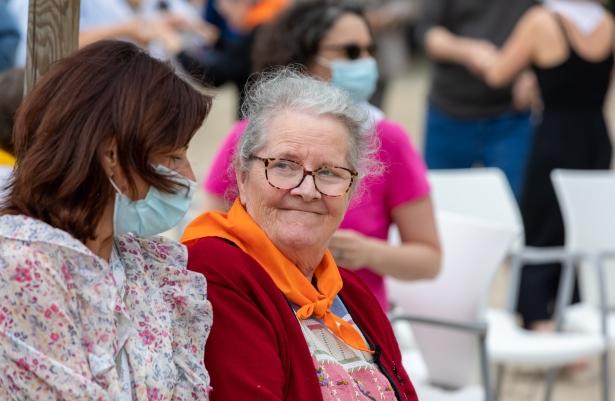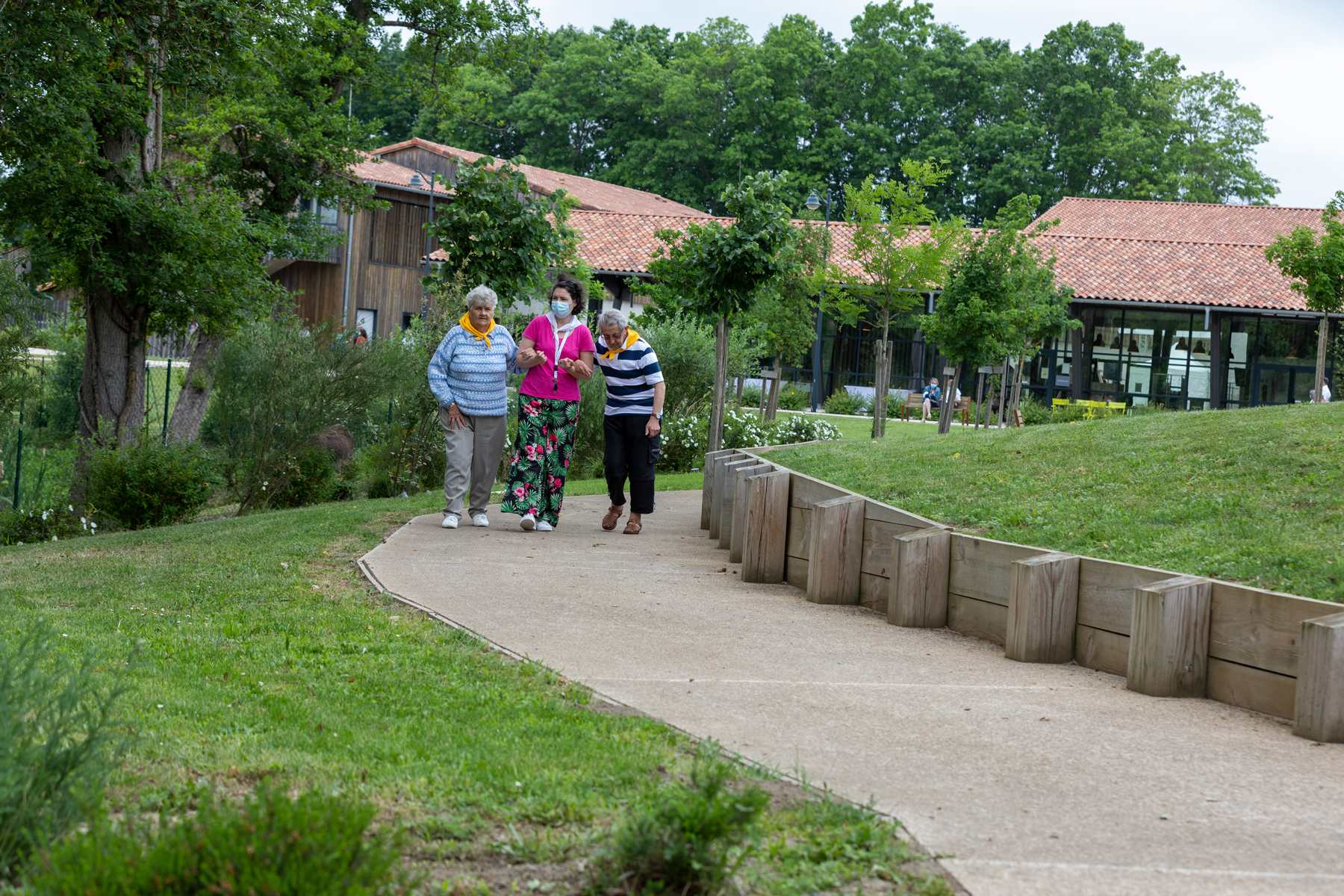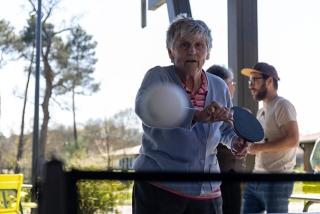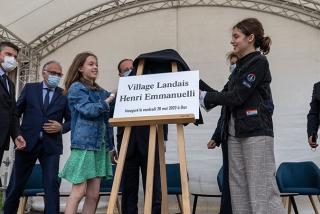Like everywhere else, the health situation has had an impact on everyone. First and foremost for villagers, but also for professionals and families. “Even if the establishment was forced to suspend the participation of volunteers, our desire was to maintain visits and remain open. It is a risk taken by the teams, by the management, but it is a possible choice when you know that you are supported and well accompanied,” explains Pascale Lasserre-Sergent, director of the establishment.
The responsiveness of the covid-19 steering committee set up within the establishment from the start of the health crisis facilitated decision-making. For example, family visits have always been allowed in the village. But they have been adapted according to the health situation by taking place either in outdoor spaces or in the most private places, that is to say the bedrooms. It was also possible to maintain end-of-life support in the village with the same practices as usual, in particular by not setting imposed hours for visits at this essential time for families.
On the field, the feeling was largely positive. Jacqueline Mazataud, a volunteer in the village, testifies: “We were able to keep in touch with the villagers by sending them letters or cards. When activities resumed, we had a meeting to give meaning to our role, as well as training for the hygiene mobility unit from the Mont-de-Marsan hospital. The volunteers also thanked the establishment for giving them very early access to vaccination, thus allowing them to resume their place more quickly within the facility. »
On the research side, Professor Hélène Amieva, director of research at INSERM who leads the evaluative research on the Landes Alzheimer's Village, included a specific question on this subject during the interviews with the families: "To what extent do you think that the Village Landais Alzheimer protects your loved one from covid-19? “With 51% of “a lot” and 18% of “Totally”, the answers recorded were very different here than in most reception establishments for the elderly in France.
However, the length of the health crisis had significant effects on the support for the inhabitants of the village. The rise of sick leaves among workers caused a high turnover in the professionals' team. For the villagers, losing this human landmark in their daily life has sometimes been difficult.
40 villagers affected by covid-19, none hospitalized
In the Village, 40 villagers have been affected by the virus, one has unfortunately died but none have been hospitalized. "Ensuring that they can stay at home in the village and thus avoid being disoriented and distressed in hospital was one of the missions we had set ourselves", underlines the director.
This feedback brought lively exchanges within the village advisory committee. Thus, these empirical data have received the positive attention of Professor Bernard Bioulac, president of the village ethics committee. Professor Jean-François Dartigues, president of the village's scientific one, wants to go further: "It will be important to analyze this crisis management and analyze its effects, in particular in comparison with other medico-social accommodation or with grouped type accommodation."
For Pascale Lasserre-Sergent, thanks to the architecture of the village, with its small housing units and the home automation that can be configured house by house, it was possible to cope with and contain the health situation. In addition, the commitment of the employees made it possible to guarantee the continuity of support and care.
Qualitative and quantitative, ethical and organizational feedback will be formalized in the coming months to draw the best lessons for the benefit of all. Hoping, however, not to see another crisis of this magnitude in our establishments...




